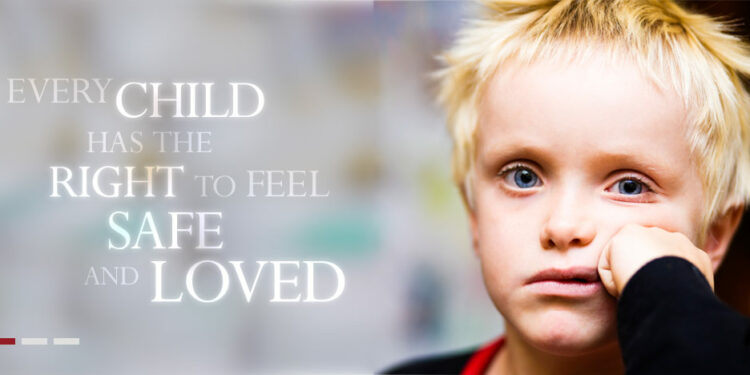Table of Contents
Signs of childhood trauma
- Reliving the event (flashbacks or nightmares)
- Avoidance
- Anxiety
- Depression
- Anger
- Problems with trust
- Self-destructive or risky behaviors
- Withdrawal
Accordingly, What happens when a child doesn’t feel loved? If they are in a situation where they do not receive normal love and care, they cannot develop this close bond This may result in a condition called attachment disorder It usually happens to babies and children who have been neglected or abused, or who are in care or separated from their parents for some reason
What does PTSD look like in a child? What are the symptoms of PTSD in a child? Children and teens with PTSD feel a lot of emotional and physical distress when exposed to situations that remind them of the traumatic event Some may relive the trauma over and over again They may have nightmares and disturbing memories during the day
What mental illness is caused by childhood trauma? In the most extreme cases, however, a traumatic event can lead to post-traumatic stress disorder (PTSD) According to the National Center for PTSD, up to 15% of girls and 6% of boys develop PTSD following a traumatic event PTSD is a mental health condition that can impact children in different ways
Further, How do you know if you’re traumatized? Signs and symptoms of emotional & psychological trauma
- Intrusive thoughts of the event that may occur out of the blue
- Nightmares
- Visual images of the event
- Loss of memory and concentration abilities
- Disorientation
- Confusion
- Mood swings
What is unloved daughter syndrome?
Lack of trust With an emotionally unreliable mother or one who is combative or hypercritical, the daughter learns that relationships are unstable and dangerous, and that trust is ephemeral and can’t be relied on Unloved daughters have trouble trusting in all relationships but especially friendship
What happens when a child grows up feeling unloved?
“Children who are not raised in safe, loving, respectful, and consistent environments tend to grow up feeling very unsafe and untrusting,” explains Manly As a result, they tend to experience challenges trusting themselves and others throughout life
How does lack of affection affect a child?
On the other hand, children who do not have affectionate parents tend to have lower self esteem and to feel more alienated, hostile, aggressive, and anti-social There have been a number of recent studies that highlight the relationship between parental affection and children’s happiness and success
Can you get PTSD from emotional neglect?
Childhood emotional neglect can also play a factor in a condition called complex PTSD (CPTSD) Indeed, any ongoing, long-term abuse and neglect can lead to this condition
What does childhood trauma look like in adults?
Childhood trauma also results in feeling disconnected, and being unable to relate to others Studies have shown that adults that experience childhood trauma were more likely to struggle controlling emotions, and had heightened anxiety, depression, and anger
How do you fix emotional neglect?
- Deeply acknowledge the way Emotional Neglect happened in your family and how it’s affected you
- Accept that your emotions are blocked off, but they are still there, waiting for you
- Pay attention to your feelings
- Keep an ongoing list of your Likes and Dislikes
- Develop and practice compassion for yourself
What does neglect do to the brain?
Studies on children in a variety of settings show conclusively that severe deprivation or neglect: disrupts the ways in which children’s brains develop and process information, thereby increasing the risk for attentional, emotional, cognitive, and behavioral disorders
What does emotional neglect from parents look like?
Childhood emotional neglect happens when your parents sufficiently neglect your emotions and emotional needs Meaning, they do not notice what you are feeling, ask about your feelings, connect with you on an emotional level, or validate your feelings enough
What are signs of a neglectful parent?
Signs and characteristics of uninvolved parenting
- Focus on your own problems and desires
- Lack of an emotional attachment
- Lack of interest in child’s activities
- No set rules or expectations for behavior
How emotional neglect shows up in adulthood?
Signs of Emotional Neglect In Adults Signs of emotional neglect in relationships include: Having one’s feelings repeatedly minimized, dismissed, or ignored Being mocked, teased, or criticized for opening up or being vulnerable Being held to unrelenting standards, even during hardships
What happens when emotional needs are not met?
Unmet emotional needs also result in increased tension or exhaustion in a relationship Couples will also often want more time away from each other and may even think about ending the relationship Just because your emotional needs are not being met, does not mean you need to end the relationship
When should you give up on a relationship?
Here are some telltale signs it’s time to move on
- When you live in past memories more than the present
- When the relationship brings you more pain than joy
- When he/she expects you to change
- When you stay on, expecting he/she will change
- When you keep justifying his/her actions to yourself
When should you quit a relationship?
If you’re constantly fighting and seem unable to resolve conflict, that could be a sign of when to leave a relationship While you can learn how to avoid arguments, you may not be able to fix deeper problems that a lack of communication indicates
What are the 10 key emotional needs?
10 Emotional Needs to Consider in Relationships
- Affection
- Acceptance
- Validation
- Autonomy
- Security
- Trust
- Empathy
- Prioritization







